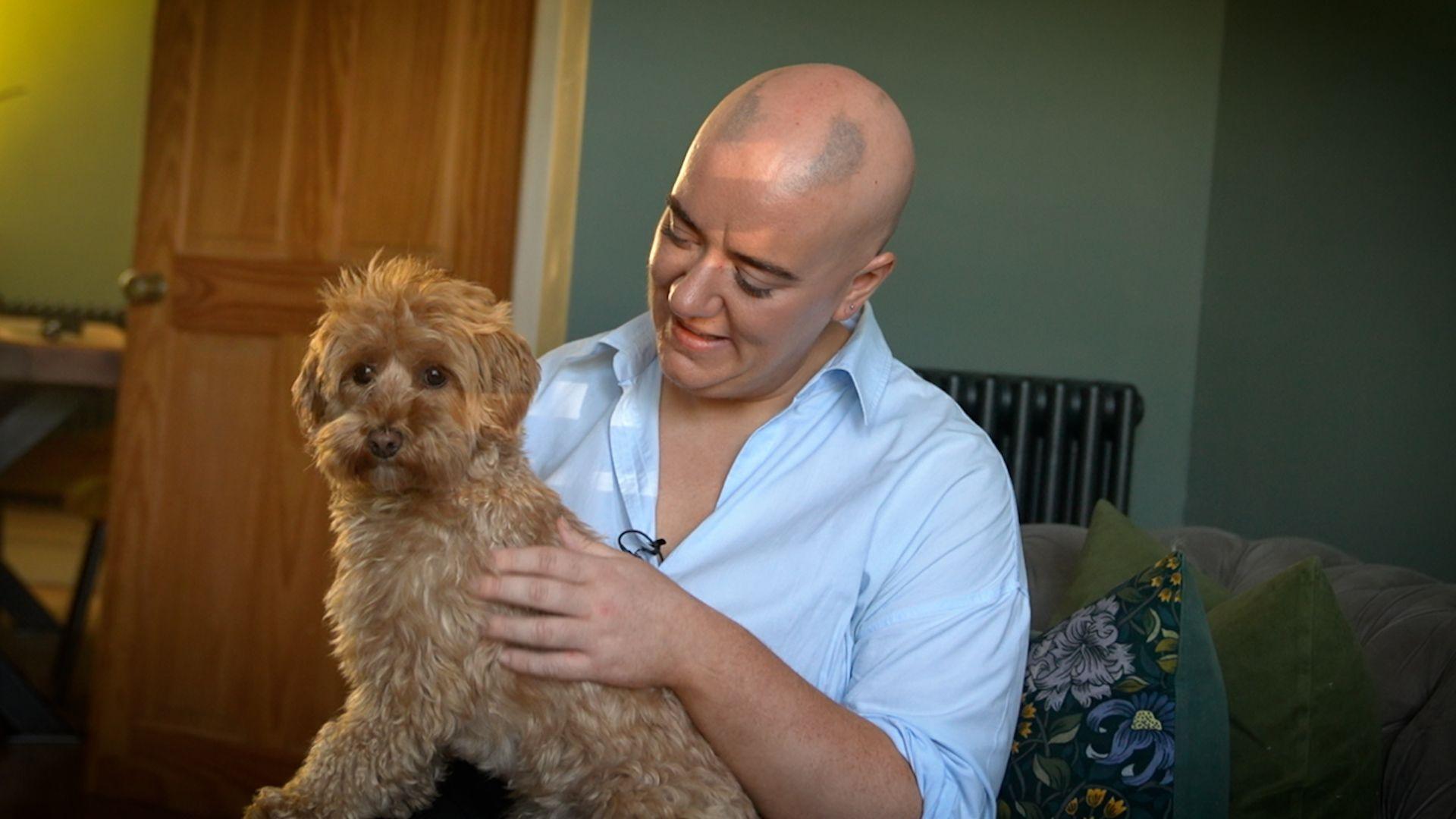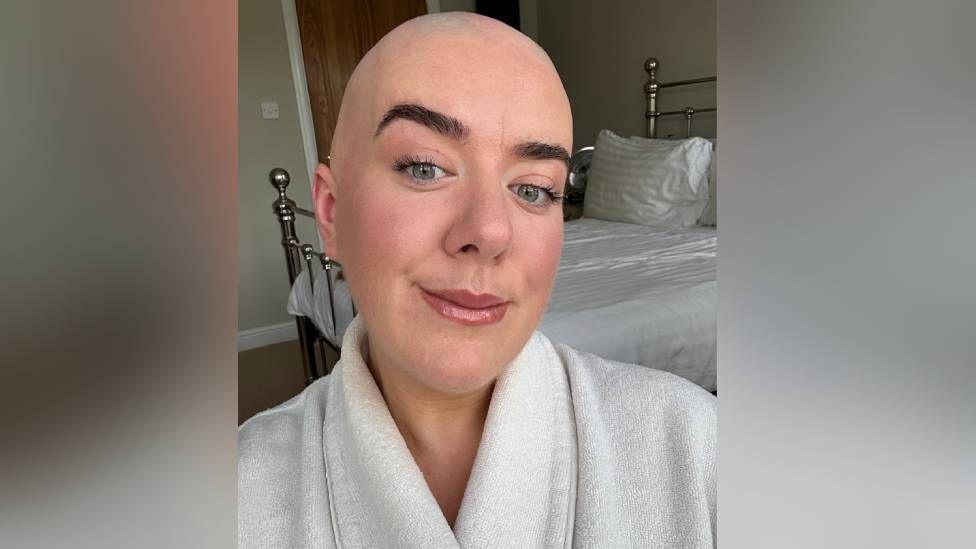Alopecia patients given hope with new drug

Nicole Thomas said the pain of losing her hair as a 13-year-old "becomes easier with time but... never really goes away"
- Published
A woman who has had alopecia since she was 13 has said that sharing her journey online has forced her to become "more open and honest" about hair loss.
Nicole Thomas, 28, from Cardiff, had successful treatment during her teenage years, but started losing her hair again last year.
She said she had "come to learn how to deal with the condition", but it was "still difficult day by day".
Earlier this year, a new drug was recommended on the NHS in England and Wales for the first time for patients aged 12 and over with severe alopecia areata.
Alopecia: New NHS drug 'could make life so much easier'
- Published1 September 2024
Balding at 16 and unable to look in the mirror
- Published14 June 2024
Alopecia, external is caused by the immune system mistakenly attacking hair follicles at the root of the hair, causing it to fall out.
Looking back at the period when she was diagnosed, Ms Thomas said: "You don’t expect to see a 13-year-old girl with patchy hair or no hair at all, so it made my school life really difficult.
"I lost lots of friends, I couldn't talk about it with my family.
"I found it really difficult to leave the house, and I actually taught myself my GCSEs from my bedroom as I couldn't go to school anymore."
After noticing she was starting to lose her hair again about a year ago, Ms Thomas decided to share her journey on social media.
"I knew I had a decision to make that I could either stay silent and hide myself away once again or start being more open and honest about my hair loss."

Nicole Thomas said sharing her journey online has forced her to become more open about hair loss
"It’s brought me a lot of comfort to be able to relate to other people and, hopefully in turn, by being able to share my story and my feelings and journey, has provided some comfort to other people too."
Although there is no long-term cure for the condition, the new drug, ritlecitinib, also known by the brand name Litfulo, is now available in Wales.
Dr Megan Samuel, a skin specialist, said the new drugs offered hope and were "very promising for people who suffer from alopecia".
She said the treatment helped hair grow back and worked in a way where it "prevents the immune system from attacking those hair follicles".
She added: "Some people suffer for the rest of their lives with this condition.
"This can be something that may help people get the cure they have been waiting for for a while."
Ms Nicole said the new treatment could be "life changing for so many people within our community".